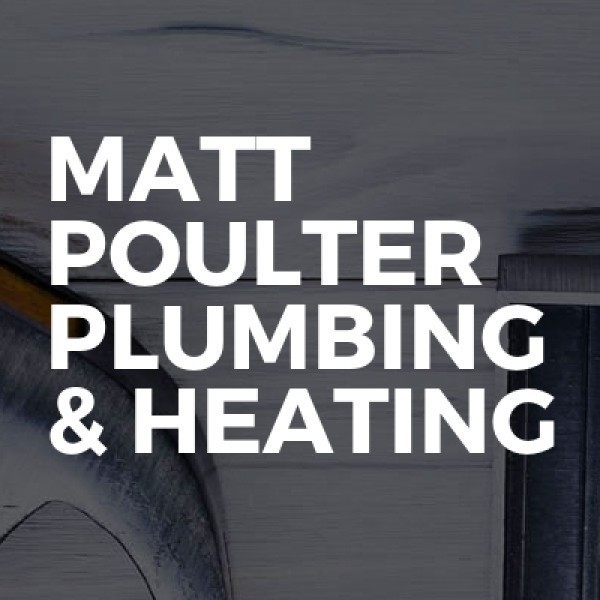Boiler/Heating Engineers in Kempston
HMO Heating Solutions UK Ltd is your go-to expert for all things related to home improvement and energy efficiency in Bl... read more »
Welcome to JD Contractors Ltd, the premier choice for builders, extension builders, boiler and heating engineers, bathroom installation,... read more »
Welcome to RJ's Plumbing And Heating, the premier choice for plumbing and heating services in Leighton Buzzard and throughout Bedfordshir... read more »
Prestige Building Contractors Ltd is a renowned name in the trades industry, proudly serving Meppershall and the wider B... read more »
Welcome to Vics Plumbing And Heating Ltd, your trusted partner for all plumbing and heating needs in Brickhill and throughout Bedfordshir... read more »
Matt Poulter Plumbing & Heating is a trusted name in the heart of Higham Ferrers, offering top-notch plumbing and heatin... read more »
Tier 1 Construction Group is your go-to solution for all tradespeople needs in Fishermead and the wider Buckinghamshire... read more »
Bishop Plumbing And Heating Ltd is a... read more »
Welcome to S Banks Plumbing, Heating & Eco Energies L... read more »
Welcome to Accuracy Plumbing and Heating, your truste... read more »
Welcome to Icon Heating and Gas Services, your go-to... read more »
Welcome to Simply Plumbing, your go-to experts for al... read more »
Welcome to Thermo-Flow Services Ltd, your go-to exper... read more »
Welcome to Gas Patrol, your trusted Boiler and Heatin... read more »
Welcome to Phmk, your trusted partner for all your tr... read more »
Welcome to Garden City Services, your go-to experts f... read more »
Welcome to Burtonsmith Plumbing & Heating Contractors... read more »
Welcome to HMA UK Services Ltd, your go-to experts fo... read more »
Welcome to A Plus Building & Maintenance, your go-to... read more »
Search Boiler/Heating Engineers in places nearby
Understanding the Role of Boiler/Heating Engineers in Kempston
Boiler and heating engineers play a crucial role in ensuring the comfort and safety of homes and businesses in Kempston. These skilled professionals are responsible for installing, maintaining, and repairing heating systems, which are essential for providing warmth and hot water. In this article, we'll delve into the various aspects of their work, the importance of their services, and how to choose the right engineer for your needs.
The Importance of Heating Systems in Kempston
Kempston, like many parts of the UK, experiences cold weather, especially during the winter months. A reliable heating system is vital for maintaining a comfortable indoor environment. Heating engineers ensure that these systems operate efficiently, reducing energy costs and preventing breakdowns. Their expertise is indispensable in both residential and commercial settings.
Types of Heating Systems
- Central Heating Systems: These systems distribute heat from a central source, such as a boiler, to various rooms through a network of pipes and radiators.
- Underfloor Heating: This modern heating solution involves installing heating elements beneath the floor, providing even heat distribution.
- Heat Pumps: These systems transfer heat from the outside air or ground into the building, offering an energy-efficient alternative to traditional heating.
Key Responsibilities of Boiler/Heating Engineers
Boiler and heating engineers in Kempston have a wide range of responsibilities that ensure heating systems function optimally. Their tasks include:
Installation of Heating Systems
Engineers are responsible for installing new heating systems, which involves selecting the appropriate equipment, setting up the system, and ensuring it operates correctly. They must adhere to safety standards and regulations to prevent hazards.
Maintenance and Servicing
Regular maintenance is crucial for the longevity and efficiency of heating systems. Engineers perform routine checks, clean components, and replace worn-out parts to prevent unexpected breakdowns.
Repair and Troubleshooting
When heating systems malfunction, engineers diagnose the problem and carry out necessary repairs. Their expertise allows them to identify issues quickly and implement effective solutions.
Qualifications and Skills of Heating Engineers
To become a competent heating engineer, individuals must possess specific qualifications and skills. These include:
Educational Background
Most engineers have completed relevant courses or apprenticeships in plumbing and heating. These programmes provide the foundational knowledge required for the job.
Certifications and Licences
Engineers must hold certifications such as Gas Safe registration, which is mandatory for working with gas appliances. This ensures they adhere to safety standards and regulations.
Technical Skills
Engineers need strong technical skills to install, maintain, and repair complex heating systems. They must be adept at using various tools and equipment.
Choosing the Right Boiler/Heating Engineer in Kempston
Selecting the right engineer is crucial for ensuring your heating system's efficiency and safety. Consider the following factors when making your choice:
Experience and Reputation
Look for engineers with a proven track record and positive customer reviews. Experienced professionals are more likely to provide high-quality services.
Certifications and Insurance
Ensure the engineer holds necessary certifications and insurance. This protects you from liability in case of accidents or damages during the job.
Cost and Value
While cost is an important consideration, it shouldn't be the sole factor. Evaluate the value of the services offered and choose an engineer who provides a balance of quality and affordability.
Common Heating System Issues and Solutions
Heating systems can encounter various issues that require professional attention. Some common problems include:
No Heat or Hot Water
This issue can result from a faulty thermostat, broken diaphragm, or airlock. Engineers can diagnose the problem and replace defective parts.
Leaking and Dripping
Leaks can occur due to corrosion or damaged components. Engineers will identify the source of the leak and repair or replace the affected parts.
Strange Noises
Banging, whistling, or gurgling noises may indicate air in the system, low water pressure, or a faulty pump. Engineers can bleed the system or replace malfunctioning components.
Benefits of Regular Heating System Maintenance
Regular maintenance offers numerous benefits, including:
Improved Efficiency
Well-maintained systems operate more efficiently, reducing energy consumption and lowering utility bills.
Extended Lifespan
Routine checks and servicing can extend the lifespan of heating systems, delaying the need for costly replacements.
Enhanced Safety
Regular inspections help identify potential hazards, such as gas leaks or faulty wiring, ensuring the safety of occupants.
Environmental Impact of Heating Systems
Heating systems contribute to carbon emissions, impacting the environment. Engineers can help reduce this impact by:
Promoting Energy-Efficient Solutions
Engineers can recommend and install energy-efficient systems, such as condensing boilers and heat pumps, which reduce carbon footprints.
Encouraging Regular Maintenance
Regular maintenance ensures systems operate efficiently, minimising energy waste and emissions.
Educating Clients
Engineers can educate clients on energy-saving practices, such as setting thermostats correctly and insulating homes.
Technological Advancements in Heating Systems
Advancements in technology have led to more efficient and user-friendly heating systems. Some innovations include:
Smart Thermostats
These devices allow users to control heating systems remotely, optimising energy use and enhancing convenience.
Hydronic Heating Systems
These systems use water to transfer heat, offering a more efficient and comfortable heating solution.
Solar Heating
Solar panels can be integrated with heating systems to harness renewable energy, reducing reliance on fossil fuels.
Frequently Asked Questions
- What qualifications should a heating engineer have? Heating engineers should have relevant certifications, such as Gas Safe registration, and experience in the field.
- How often should I service my heating system? It's recommended to service your heating system annually to ensure optimal performance and safety.
- What are the signs of a faulty boiler? Common signs include no heat or hot water, strange noises, and leaks. If you notice these, contact a professional engineer.
- Can I install a heating system myself? It's not advisable to install a heating system yourself due to safety risks. Always hire a qualified engineer.
- How can I reduce my heating bills? Regular maintenance, using a programmable thermostat, and insulating your home can help reduce heating bills.
- What should I do if I smell gas? If you smell gas, evacuate the area immediately and contact a Gas Safe registered engineer or emergency services.
In conclusion, boiler and heating engineers in Kempston are essential for maintaining comfortable and safe living environments. By understanding their role, qualifications, and the importance of regular maintenance, you can ensure your heating system operates efficiently and reliably. Whether you're installing a new system or need repairs, choosing the right engineer is key to achieving peace of mind and optimal performance.
Send a message











